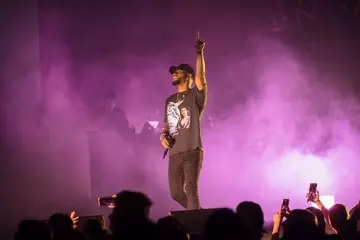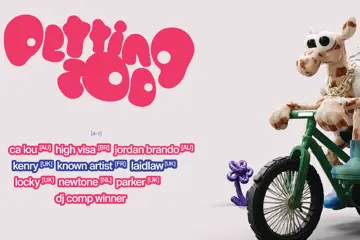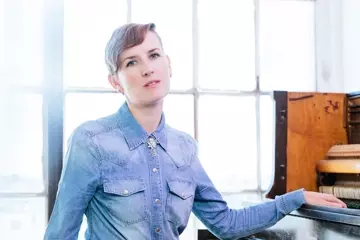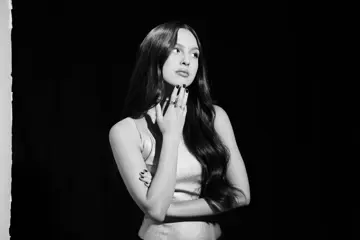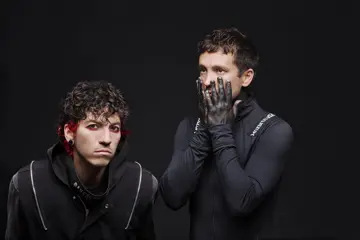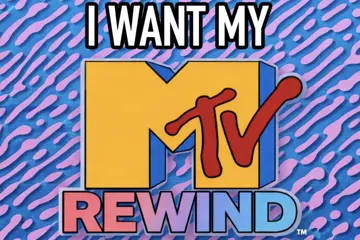There's no two ways around it: when it comes to Marvel superheroes, Netflix well and truly knows what it's doing.
In some ways, it's a little hard to believe that we were only introduced to this darker, more mature corner of the shared Marvel Cinematic Universe in April last year, with the debut of the game-changing first season of Marvel's Daredevil. That such a short stretch of time has passed since our initial introduction seems even more absurd given that, in just over a year since, we've seen not only a second season of Daredevil but the introduction of two other shows, Marvel's Jessica Jones and, now, Marvel's Luke Cage.
As of this past weekend, the latter's first season is presently streaming on Netflix, starring Mike Colter in the title role (which he initiated in Jessica Jones), and the ultra-slick, eminently binge-watchable series, helmed by showrunner Cheo Hodari Coker (Notorious, Southland), builds on the lessons learnt by its predecessors — and introduces a few tricks of its own — to deliver arguably the strongest Netflix-Marvel season to date.
Even with three of four primary puzzle pieces now in place on the road to the ultimate endgame of upcoming crossover/team title Marvel's Defenders — following the impending first season of Marvel's Iron Fist — there's still a ways to go on the journey ahead (including a detour of Daredevil spin-off The Punisher), so if you're wondering whether you should pass some time by hopping on board the Luke Cage train, the answer is, unequivocally, yes.
Why? Well, since you asked...
He's The Hero we Need Right Now
If you thought the creative team behind Luke Cage were planning on tip-toeing around the issue of race in contemporary American and greater Western society, then, to be blunt, you thought super-wrong. With a wrongfully imprisoned, bulletproof black man at its centre — and a real world combating bubbling racial tensions continually stoked by trigger-happy authorities and an epidemic of overcrowded prisons — there was never going to be any way to avoid it as a stark reminder of the struggles African-Americans and other people of colour have faced, and continue to face, because of the hue of their skin (i.e. being murdered in the street).
Don't miss a beat with our FREE daily newsletter
"I'm not one of those people that says, 'Oh, Luke Cage happens to be black,'" Coker said of his protagonist in a recent interview with Vanity Fair. "No, he's black all day because I'm black all day."
Like Jessica Jones and its exploration of post-traumatic stress, sexual assault and consent, Luke Cage wears its blackness proudly from its roots to its leaves; it's rightly flaunted in the language, the settings (unlike its predecessors, the series takes place in Harlem, rather than Hell's Kitchen), the culture and the characters. Even for someone, such as this writer, who by default relates most to the white Catholic guilt championed in Daredevil, it's a wonderful opening to an all-too-underrepresented world, not a point of exclusion. As such, it carries great and much-needed meaning for those for whom this show has truly been made, as well as being an enlightening and engaging watch for those who have the opportunity to enjoy it regardless.
As Coker told Rolling Stone: "Just because you're outside the culture doesn't mean you can't understand it, learn from it, enjoy it. You can agree with it or disagree it. Just don't expect a theme-park version of the black experience."
The Villains Are brilliantly realised
As much as Netflix has nailed its heroes so far, its shows have done an equally impressive job of crafting complex, three-dimensional antagonists, and Luke Cage more than capably maintains that tradition with its triumvirate of primary villains.
Don't get me wrong; both Daredevil and Jessica Jones have boasted fearsome adversaries, with vastly different skill sets and motivations — Fisk's brute strength and business acumen; Killgrave's scheming and mind control; Castle's boundless armory and black-and-white sense of justice; The Hand's… ninjas — but Luke Cage manages to juggle three very different, very human underworld figures at once, and do them all justice.
First, we're introduced to crime boss Cornell "Cottonmouth" Stokes (Mahershala Ali), a violent and unpredictable player in Harlem who serves as owner of local nightclub and shady-shit ground-zero Harlem's Paradise. A once-promising, timid piano prodigy, Cottonmouth has made a name for himself as a career criminal, prone to bouts of satisfied laughter at almost anything, who wears a calm-and-collected demeanour even when doling out physical violence, despite his penchant for straight-up shooting people for so much as offering an alternative viewpoint.
We find out pretty quickly that he's in cahoots with his cousin, Mariah Dillard (Alfre Woodard), a well-meaning city counsellor and reluctantly dynastic criminal whose political ambitions and desire to see Harlem remade in her own image see her take increasingly dubious actions as the season progresses. She swiftly finds herself on a downward slide from being mildly shady into an out-and-out crook, goaded along by the ever-scheming, sunglasses-wearing Shades (Theo Rossi), who is basically Harlem's Littlefinger. Her character is based on the unfortunately named comics villain Black Mariah — a moniker for which her character shows visible disdain — and Woodard gives a stunning performance as a woman at odds with herself who is swiftly learning that you can't roll in muck and stay clean, however secretively you do it.
And then there's Willis Stryker, aka Diamondback (Erik LaRay Harvey), the season's third antagonist and end-game boss; the godfather of Harlem godfathers, as it were. Named after a snake (as is Cottonmouth, incidentally), Harvey's delivery of Diamondback's lines is as serpentine as it comes — a quality reflected in the physicality of his swift, jabby fighting style. His glinting eyes and creeping smile only add to his air of mystery and gravitas as his myriad secrets and lies, many of them involving Cage himself, are unwound over the course of the final battles for Harlem's soul.
It's not just the major figures, either; even Rackham, the ultra-racist prison guard who inadvertently helps Luke gain powers by messing with a totally above-board, not-at-all-shady prison super-science experiment, is a discomfiting force despite being a relatively minor presence in the grand scheme of things, but that might be because he literally just looks like a Nazi.
the entire cast is as good as its lead
Speaking of Rossi's performance as Shades — and the general strength of the series' ensemble — he's just one of several wider cast members to make themselves more memorable than they ought to be by way of turning in seriously solid showings. At introduction, Shades just seems like kind of a one-note character named for his obvious proclivity for wearing sunglasses even when totally inappropriate but, by the end of the season, he transcends that to be one of the most interesting and morally ambiguous characters on the show.
Add that to Colter, Ali, Woodard and Harvey and you'd already have a powerhouse ensemble on your hands, but Marvel's Luke Cage carries its excellence right across its character base. Main-cast member Simone Missick, for example, is eminently enjoyable as badass Harlem cop Misty Knight, instantly bestowing the beloved character with a definitive portrayal, while Frank Whaley provides a deceptively meaty turn as her jaded mentor and partner, Rafael Scarfe. Recurring cast member Ron Cephas Jones is an absolute delight as Bobby Fish, Jacob Vargas manages to make his short stature loom large as underworld boss Domingo Colon and Frankie Faison brings warmth and gentility to his role as Henry 'Pop' Hunter. It all helps to build the comprehensive and colourful world that Marvel's Luke Cage inhabits, and it's been a running point of strength for all of the Netflix Marvel shows to date.
The Soundtrack is truly Phenomenal
Moreso than any of its sister shows, Luke Cage makes music a centrepiece of its universe. Several scenes take place either at Harlem's Paradise or between the club and another location; these are frequently scored by 'live' performances from a broad array of musicians including Raphael Saadiq, Faith Evans, d-Nice, Charles Bradley, Jidenna, The Delfonics, Method Man (who also guest stars in a speaking role) and Sharon Jones & The Dap-Kings.
In addition, the show's episode titles take their cue from songs by rap veteran Gang Starr, each installment scored brilliantly throughout by composer Adrian Younge and hip hop legend Ali Shaheed Muhammad (A Tribe Called Quest), using attitude-heavy hip hop beats to punctuate several key moments. These include both original tracks and songs provided by acclaimed artists including John Lee Hooker, Wu-Tang Clan, Mahalia Jackson, Dusty Springfield and Nina Simone. Luke Cage wields music like a weapon in its arsenal of awesome in a way that neither of its predecessors has, and it only serves to further set it apart as arguably the strongest effort from the House Of Ideas for the cyber-screen yet.
It Actually Shares Its Universe
One of my primary criticisms of the Netflix end of the MCU to date has been how disconnected it has felt from the rest of the shared universe. We never hear about "The Hulk" or "Thor", or the time The Avengers saved New York from aliens; it's always "the big green dude", "the tall blond one", and "the Incident" — if they're mentioning them at all.
Daredevil's first season suffered the most as it truly was the first seed in this corner of the garden, meaning all its in-universe references had to be to external properties (i.e. the existing movies or Agents Of SHIELD). Jessica Jones was marginally better, being able to cross over somewhat with Daredevil (which in turn was able to build some back-and-forth references to JJ in its second season), but choosing to do so arguably too late, having guest star Rosario Dawson show up, seemingly shoe-horned in, for a tiny but meaningful appearance in the back half of the season.
In comparison to its predecessors, though, Luke Cage takes broad steps to fix this; "Tony Stark" is mentioned by name, as is "Captain America" (though Hulk and Thor are both still referred to cryptically), while Daredevil characters Wilson Fisk and Frank Castle are also name-dropped, recurrent gun-runner Turk (Rob Morgan) shows up again (dude's a way better criminal than people give him credit for) and Matt Murdock is referenced. Additionally, Jessica Jones' Trish Walker (Rachael Taylor) makes a voice cameo, Iron Man 2 villain Justin Hammer is mentioned, and even the setting of Seagate Prison is no longer a standalone concern, having first been introduced in the Marvel one-shot All Hail The King.
This is all helped along by the much greater role afforded to Rosario Dawson in her capacity as Claire Temple, aka the Night Nurse. A core character of Daredevil's first season, Dawson popped up in Jessica Jones for a small role to tie the two together before taking on a far more pivotal position for Luke Cage, being a regular fixture of the show and actively playing a part in the story's central action, including a late-game blink-and-you'll-miss-it link to Iron Fist that will no doubt come into play and see the Night Nurse become the key link between our disparate heroes in order to ultimately bring them together for Defenders.
Also, sweet little Easter egg for those really paying attention — keep an eye out for when Claire gets a cut on her eyebrow, because that's the same wound she's already sporting when she shows up in Daredevil's second season.
See? Everything's better with a little more continuity.

Marvel's Luke Cage is streaming on Netflix now.

